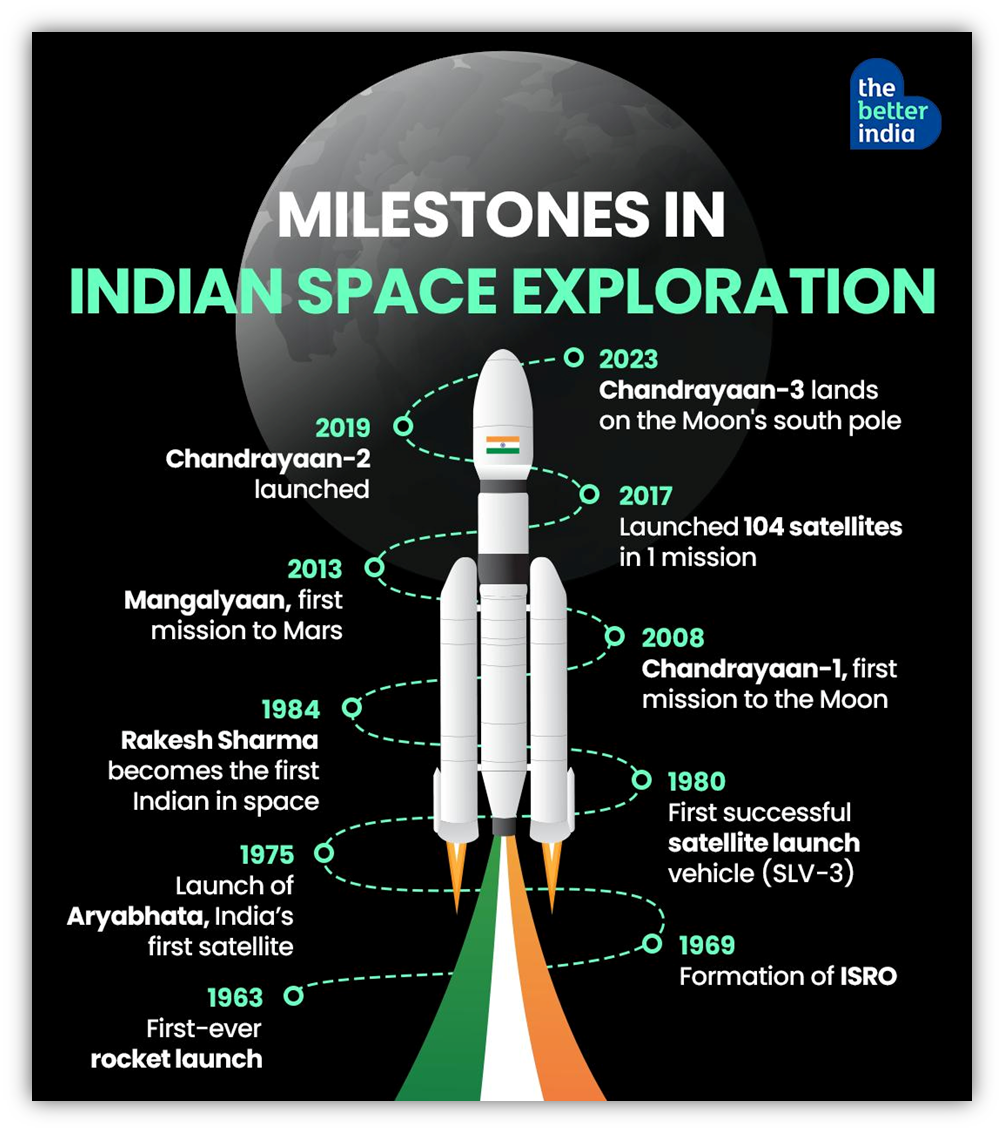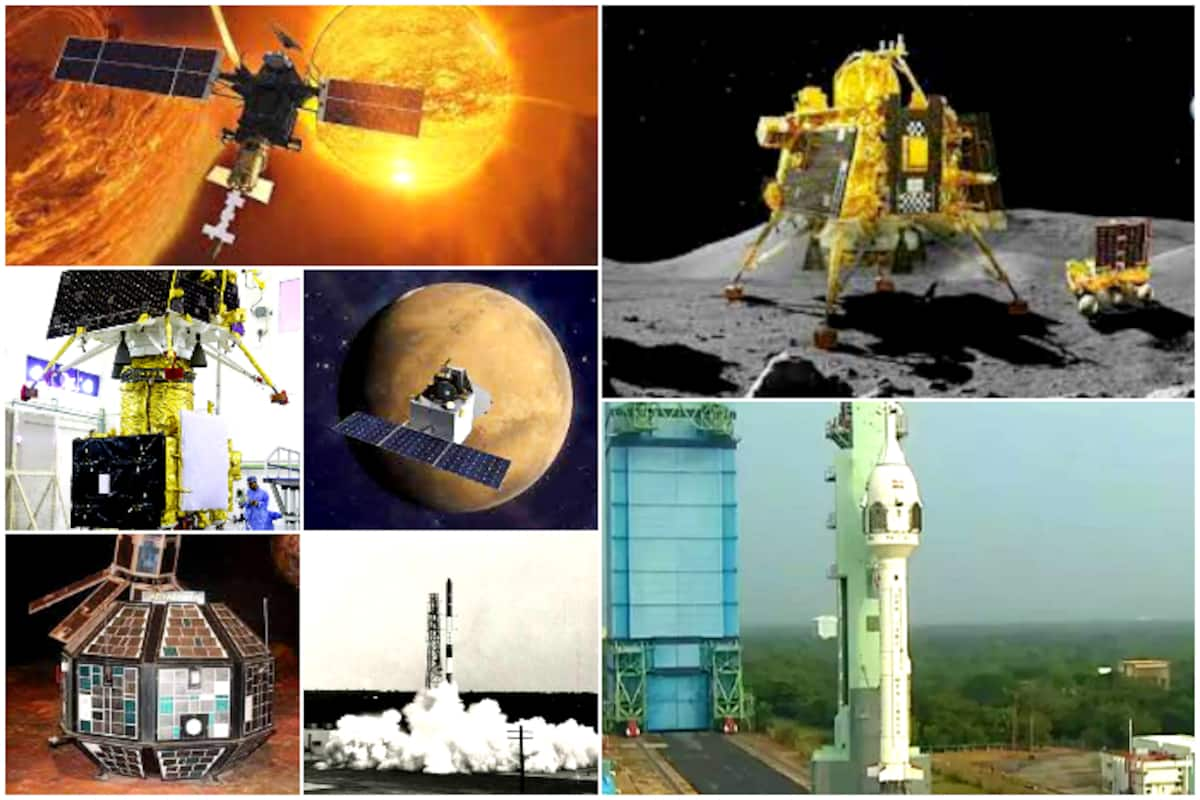ISRO & India’s Space Vision

About ISRO (Indian Space Research Organisation)
The Indian Space Research Organisation (ISRO) is the space agency of the Government of India, founded on August 15, 1969, by Dr. Vikram Sarabhai, often regarded as the Father of the Indian Space Program.
Headquartered in Bengaluru, ISRO operates under the Department of Space, which reports directly to the Prime Minister of India. Over the decades, ISRO has transformed India from a developing nation dependent on other countries for satellites, into a global leader in space technology, offering launch services to many countries.
Key Achievements of ISRO :
- Aryabhata (1975):
First Indian satellite, marking India's entry into space.
- SLV-3 (1980):
India’s first successful launch vehicle; placed the Rohini satellite into orbit.
- Chandrayaan-1 (2008):
First Indian lunar mission; discovered water molecules on the Moon.
- Mangalyaan / Mars Orbiter Mission (2013):
First Asian mission to Mars, and India became the first country to reach Mars in its maiden attempt.
- Chandrayaan-2 (2019):
Second lunar mission; orbiter continues to function and send data.
- Chandrayaan-3 (2023):
Successful soft landing near the Moon’s south pole — a first in the world.
- Aditya-L1 (2023):
India’s first solar mission to study the Sun’s outer atmosphere.
- Gaganyaan (Upcoming):
India’s first manned space mission, expected in the near future.
India’s Vision in Space Exploration

India’s long-term space vision includes:
Affordable and Accessible Space Technology :
ISRO is known for building cost-effective missions with global impact. For instance, the Mars mission cost less than some Hollywood movies.
Space for National Development :
Satellites are used for:
- Telecommunication
- Weather forecasting
- Agriculture monitoring
- Disaster management
- Navigation and mapping (NAVIC)
Global Launch Services :
Through the PSLV (Polar Satellite Launch Vehicle) and GSLV, India has launched satellites for over 30 countries, becoming a trusted space partner.
Scientific Research & Innovation :
ISRO promotes cutting-edge research, space science, and planetary studies.
Private Sector Involvement :
With new space policies, private companies and startups in India are encouraged to innovate and participate in the space sector.
Future Goals :
- Gaganyaan (manned mission)
- Shukrayaan (mission to Venus)
- Moon base collaboration
- Expansion of India’s space station by 2035

ISRO is not just about space — it’s about inspiring a billion dreams. Its achievements reflect India's scientific progress, technological capability, and vision for a self-reliant future in space. With a perfect blend of ambition and humility, ISRO continues to reach for the stars while serving life here on Earth.
For more details click on : ISRO or About ISRO



